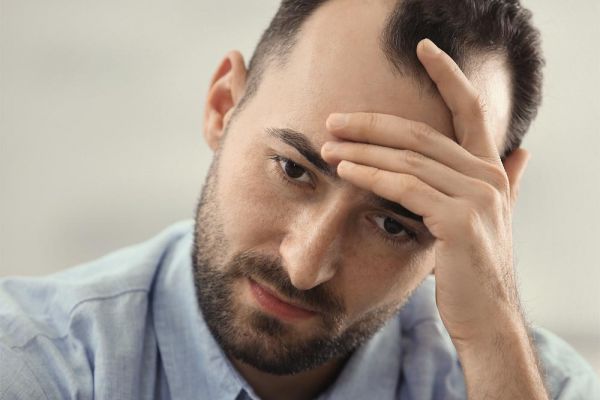 Humans are social creatures. Most of us want and need to be surrounded by friends, family, and loved ones. But, what happens when you can’t? It remains true that the more we need help, the more most of us self-isolate. And, pandemic and health risks have done little to help with that. But, whether you’re isolating because of the pandemic, because of mental health problems, or because you just don’t feel up for meeting people – it’s incredibly bad for both your mental and physical health.
Humans are social creatures. Most of us want and need to be surrounded by friends, family, and loved ones. But, what happens when you can’t? It remains true that the more we need help, the more most of us self-isolate. And, pandemic and health risks have done little to help with that. But, whether you’re isolating because of the pandemic, because of mental health problems, or because you just don’t feel up for meeting people – it’s incredibly bad for both your mental and physical health.
Social isolation is so bad for mental health that it is linked to depression, increased anxiety, and increases in the symptoms of multiple behavioral disorders. In children, it results in increased social disorders and social anxiety. And, in persons older than 50, it greatly increases the onset of dementia such as Alzheimer’s.
People with Poor Mental Health are More Likely to Isolate
Social isolation has been used as a predicting factor for mental health problems for decades. In fact, the poorer your mental health, the more likely you are to withdraw from your friends, family, and social support networks. That holds true for anxiety, depression, bipolar disorder, and even substance use disorders. Individuals with poor mental health withdraw for a variety of reasons. One of the most powerful is the expectation or the experience of stigma. Here, you might feel that your mental state is a burden and that you are constantly asking others to deal with negativity. In other cases, you might feel apathetic. Why would you bother doing something when you don’t care and nothing makes a difference? And, those with substance use disorders frequently withdraw for a variety of reasons, including those previous two, as well as guilt, pleasure seeking, and the fact of having fights with your social network.
The thing is, social isolation overlaps with mental health problems in more ways than one. If you’re socially isolated, you’re more likely to develop mental health problems. But, if you have mental health problems, you’re more likely to isolate.
Direct Impacts of Social Isolation on Mental Health
 Studies show that people who chronically feel lonely frequently experience very similar symptoms. These include but are not limited to:
Studies show that people who chronically feel lonely frequently experience very similar symptoms. These include but are not limited to:
- Increased risk of suicidal ideation and suicide attempts
- Decrease in quality of sleep or increase in sleeplessness
- Reduced regulation of eating (E.g., more prone to eat too much/too little)
- Increased stress, decreased ability to cope with stress
- Reduced attention span
Eventually, this can exacerbate to feelings of confusion, inability to concentrate, and even onset trauma. That can even become PTSD, as individuals lose control over their life and how they intend to live it.
While medical studies are very quick to point out that interpersonal relationships don’t solve every mental health problem (For example, those of us with bipolar disorder and schizophrenia can see worse outcomes when facing high-stress and highly emotional interpersonal relationships), maintaining relationships and social support networks is incredibly valuable for most people’s health.
Loneliness and Changes to the Brain
 While the effects of long-term isolation are not well studied in the general population, they are very well studied in prisons. Here, individuals often face extreme social isolation – they are split off from friends and family and may even be isolated completely in prison itself – with no chance of making new friends or connections. In this extreme environment, many show changes to the brain.
While the effects of long-term isolation are not well studied in the general population, they are very well studied in prisons. Here, individuals often face extreme social isolation – they are split off from friends and family and may even be isolated completely in prison itself – with no chance of making new friends or connections. In this extreme environment, many show changes to the brain.
Reduced Volume of Prefrontal Cortex
One of the most extreme is the reduction in volume of the prefrontal cortex. This area of the brain is responsible for regulating behavior and is important in regulating social behavior. This reduction could be why people in isolation tend to be more socially awkward and inept than people who regularly interact with others. Importantly, this means that the longer you isolate, the harder it is to feel good about being around people again, so the harder correcting the issue will be.
Hippocampus
Persons in extreme isolation also show shrinkage to the hippocampus, along with increases in concentrations of brain-derived neurotrophic factor. This results in increased levels of the stress-causing hormone cortisol. It also results in shorter memory, shorter attention span, and reduced ability to learn. This could account for the increased stress and increase in confusion seen in persons who normally self-isolate.
Smaller Amygdala
The amygdala is well-known for emotional regulation. But, people who self-isolate have significantly smaller amygdala. That means you struggle to regulate both positive and negative emotions. Your highs are likely to be higher, but you’re likely to experience depression and extreme anxiety as well. This can be a significant factor in feelings of anxiety and depression, although it would exacerbate rather than cause those issues.
Changes in the Reward Circuit and System
The reward circuit, or the parts of the brain that produce serotonin and dopamine in response to doing things you enjoy, are significantly less active during social isolation. That’s important, because much of the reward circuit is triggered by social contact. So, dopamine is the hormone and neurotransmitter that causes you to anticipate going out and doing things – serotonin is the hormone that makes you feel good about it.
When you engage in less social activity, you reduce the amount of both triggered in your brain. For example, the reward circuit would normally trigger on events like helping out a friend, giving someone a hug, sexual contact, having a meaningful discussion with your family, etc. If you don’t do those things, if you don’t give help and receive it in return, your brain produces less dopamine and serotonin. That results in two primary results:
Apathy
If you don’t have dopamine and serotonin motivation, you stop wanting to do things. You feel apathetic. You might even struggle to feel things at all. And, if you do them, your brain might not respond in a way that makes it feel good. So, you drop hobbies and things you like to do. You might even stop taking care of yourself, stop maintaining your home, and stop maintaining your relationships. This is one of the first symptoms of depression and anxiety and it worsens over the course of the disorders.
Seeking Behavior
Just because you’re not triggering the reward circuit doesn’t mean you don’t want and need to do so. If you don’t have social triggers, many people start to look for other triggers. Those are often food, alcohol, drugs, video games, or even TV. Some people become addicted to exercise or surfing the Internet. But, many people turn to something else to trigger the reward circuit, so that you get to feel something. Not everyone engages in this, but it’s extremely common.
Getting Help
If you or a loved one is self-isolating or is experiencing mental health problems after isolating for too long, it’s important to get help. Isolating behavior is normally treated with cognitive behavioral therapy (CBT). Here, you’ll review underlying causes of the problem, what you can do about it, and how to build behaviors that build up your mental health. CBT also looks at the negative impacts of isolation and works to treat the symptoms, so that you can return to as much health as-is possible.
Often, that means working to build good support networks, taking time to be social even if it’s over the internet and Zoom, and investing in family and networks. Sometimes it also means engaging in long-term therapy to treat underlying problems resulting in self isolation, low self-esteem, and stigma. But, getting help will allow you to examine where problems come from, look at the negative impacts of isolation, and work to create patterns and habits that improve your health moving forward.
If you want to more information about mental health treatment and the therapies offered at the Gooden Center, let us know. Or, call us at 800-931-9884 for a free consultation.
